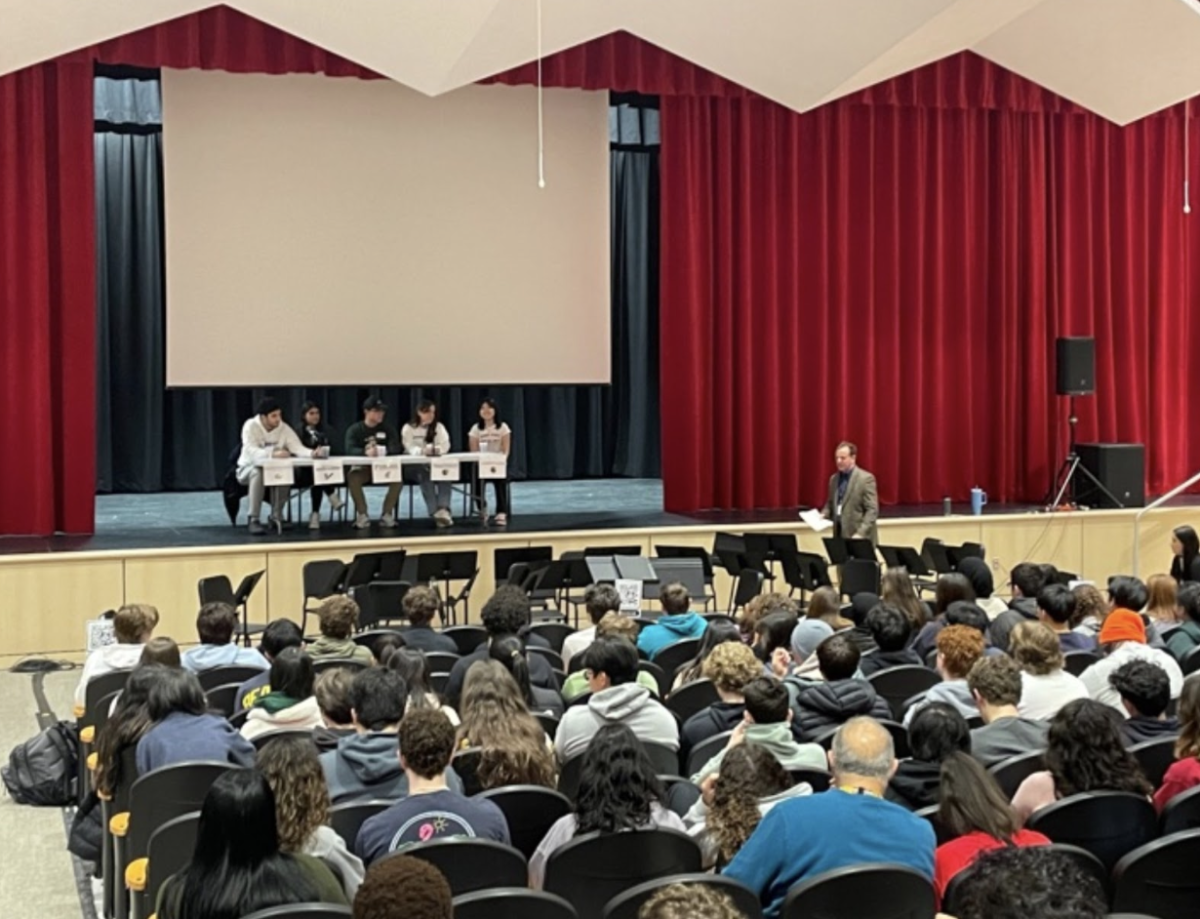Prior to the COVID outbreak, school advisors had come up with a new assembly idea: to bring back former alumni of Cresskill to discuss and inform future graduates about college life. Then soon after winter break on January 4th, 5 former students Mark Achkar, Shani Gal, Chris Raymond, Danielle Viallani, and Yubin Lee visited the school to answer some questions high schoolers had. The event took place in the auditorium and was an open discussion type assembly. Students would raise their hands or input questions online through a QR code. The 5 former students discussed school campuses, how to balance work, how classes are different, and Greek life. After the assembly many of the students had positive reviews about the event, many liked the fact that they could directly ask some personal problems/questions they had about college.
On January 4th, 5 former students Mark Achkar (George Washington University), Shani Gal (University of South Florida), Chris Raymond (Purdue University), Danielle Villani (TCNJ), and Yubin Lee (Cornell) came to answer Cresskill High School’s most asked questions.
One of the questions that was asked first was if the Honors college program was worth it to apply for. Chris Raymond mentioned, the honors colleges have classes that are not available to every college student (specific to Purdue). In addition, most colleges offer scholarships to those who will attend honors colleges, and since it’s a smaller pool of students who attend, the way a student can connect with their teachers is far better compared to a normal campus setting. However, he did say the honors college is separated from the main campus, and some of his friends that do attend honors college feel isolated from the other students. Mark Achkar added to this comment saying at George Washington the honors college campus was more urban and the main campus was slightly more rural, this showed a clear distinction of how universities separate the honors college from the regular admission campuses.
Another question that popped up frequently was how to balance work with extracurricular activities. Shani Gal mentioned college is far more lenient in terms of how much time one has, she says as a biology major it is very easy to fall into the rabbit hole of procrastination. However, she mentions the difference with college is that sheer volume of the workload. Even if a college student only has 2-3 classes per day which is far less compared to Cresskill’s 9 period schedule, the work that each class gives balances out the little classes she has.
Danielle Villani also mentioned how lenient college is in regards to time, but she feels as a nursing major that procrastinating is not an option in college. The general census on how to balance extracurricular with school work was to “keep yourselves accountable”.
College is a space in which young adults become actual adults, the concept of consequences of one’s actions is amplified. Lastly, the most touted question of them all: how is Greek life, and do you think you need to join a sorority to be a part of the social circle? Yubin Lee mentioned, joining a sorority is not something one HAS to do, however, there is a benefit for students who attend a much bigger school.
Being from Cresskill the change in sheer class size had been a shock, Chris Raymond mentioned, when he first got to Purdue it was almost overwhelming for him to even try and approach a person to make friends outside of his roommates. However, similar to what Yubin said; Chris mentioned, being a part of a frat or sorority definitely opens up doors to meeting all different types of people and can be a helpful program for students who struggle to keep up with college life in terms of their social life.









